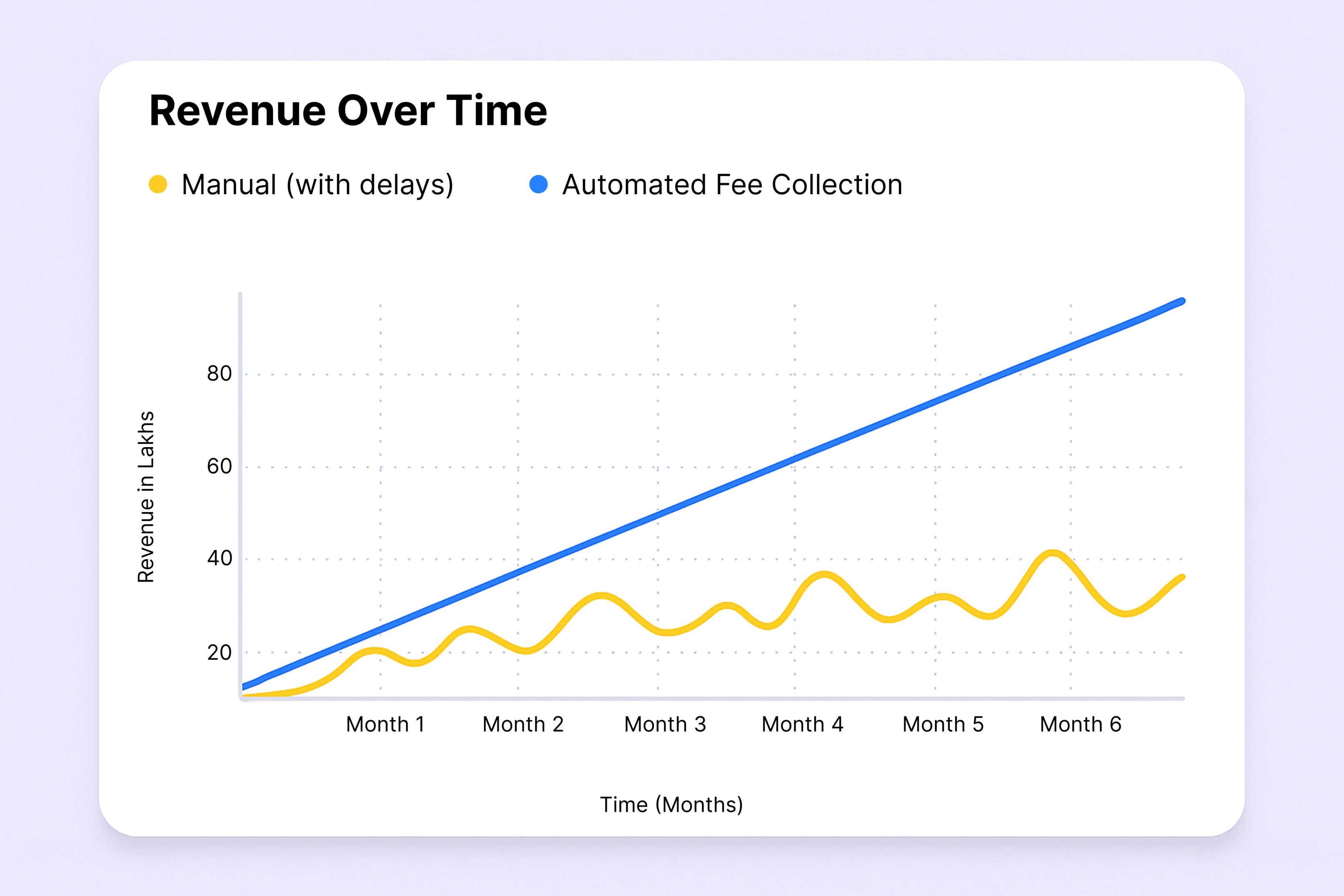Problems colleges face in fee collection
Why most colleges lose money, time, and control — and how it all begins with fee collection.

If you’re a college administrator or finance decision-maker, you already know: collecting fees isn’t just a back-office task. It directly affects your cash flow, staff morale, and even the quality of education you deliver.
But have you ever stopped to ask — where exactly does this problem begin?
Let’s unpack it.
The problem begins with the best of intentions
Most colleges in India follow a traditional fee structure — semester-wise or annual. It seems simple, and in theory, it should work. But for many parents, paying a large lump sum upfront is difficult.
To encourage admissions, colleges often introduce discounts or relaxed payment windows. The idea is to make education more accessible.
And it works — initially.
Admissions come in. The first semester’s fees trickle through.
But then, reality hits.
The snowball effect of delayed payments
As the year progresses, the cracks begin to show. Installments are missed. Follow-ups are ignored. Payment plans stretch into months.
By the second or third semester, outstanding dues have ballooned. It’s not uncommon for colleges to have ₹50 lakh to ₹2 crore in pending fees by the end of the academic year.
Read: How a top college in Maharashtra collected outstanding fees worth ₹13 Crore in a single day
Even worse? Many of these payments come in after the service (education) has already been delivered.
That’s like running a business where customers pay you months after consuming the product — and only when you chase them.
You could be losing up to 3–5% of your total revenue each year because of delayed fee collections. That’s not just inconvenient — it’s unsustainable.
How this impacts your institution
Delayed fees don’t just affect your balance sheet — they disrupt everything:
-
Salaries get delayed. Faculty and staff morale takes a hit.
-
Vendor and utility payments pile up. Essential services start getting affected.
-
Academic departments are dragged into collections. HODs and non-finance staff waste hours following up on fees instead of focusing on academics.
The entire ecosystem suffers.
And when it’s finally time to collect fees, institutions resort to a painful (and often controversial) tactic: withholding exam hall tickets.
This forces students to scramble for last-minute payments — usually via cheques, demand drafts, or bank transfers.
Reconciliation becomes a nightmare. Lines at the fee counter get longer. Stress levels shoot up.
What should be a streamlined financial process ends up disrupting the academic calendar itself.
Check out: The hidden crisis in Indian education: How fee collection delays are crippling our institutions
lack of visibility = loss of control
Perhaps the biggest hidden cost? You don’t know where your money is.
With scattered offline payments and manual tracking, there’s no real-time dashboard to tell you:
-
Who has paid and who hasn’t
-
Which classes or departments are lagging behind
-
How much cash you can actually expect next week or next month
It becomes guesswork.
So what’s the fix?
At Jodo , we’ve spent years solving this exact problem.
Our platform — trusted by 2,500+ educational institutions — brings together Jodo Flex, Pay, and FMS to help colleges:
-
Collect 100% of fees on time, digitally
-
Offer flexible installment plans without risking collections
-
Reduce admin workload by over 60%
-
Get complete visibility through real-time dashboards
The result? Colleges run smoother, educators focus on teaching, and finance teams stop playing catch-up.
Note: This blog is the first in our series on fee collection challenges in higher education.
In the next piece, we’ll explore:
“How to fix college fee collection via virtual accounts”
For more insight into how Jodo is revolutionizing fee collection, connect with our Co-founder, Atulya Bhat on LinkedIn.









